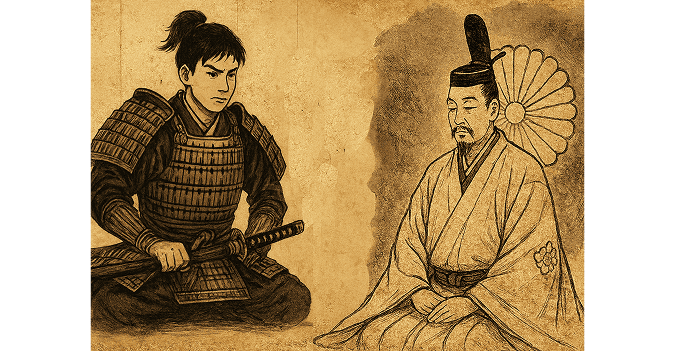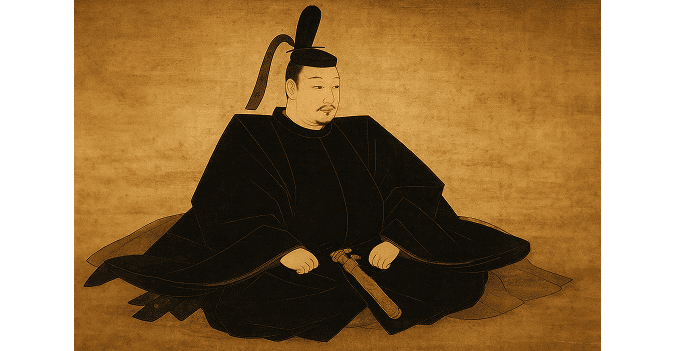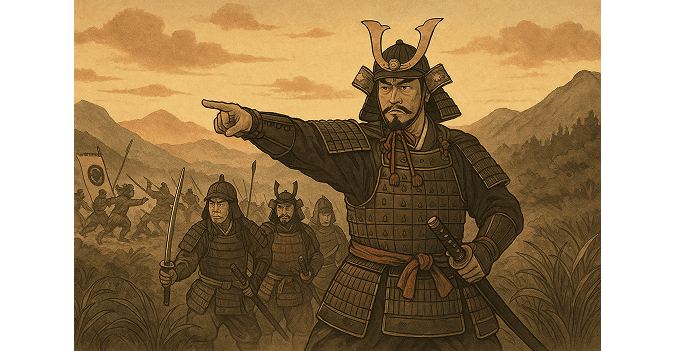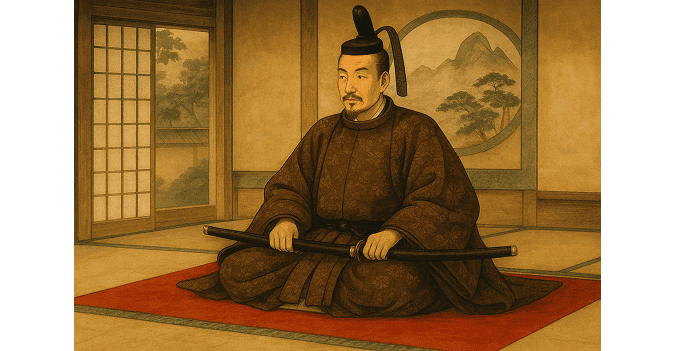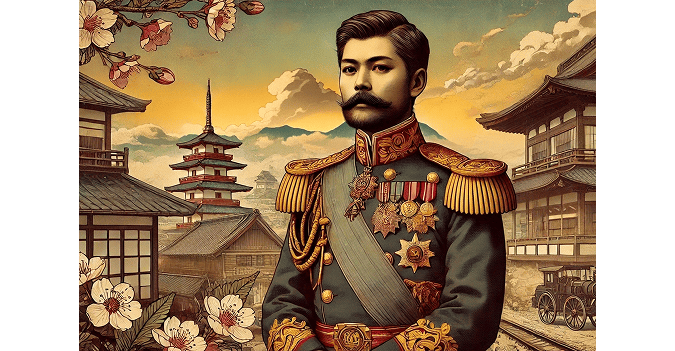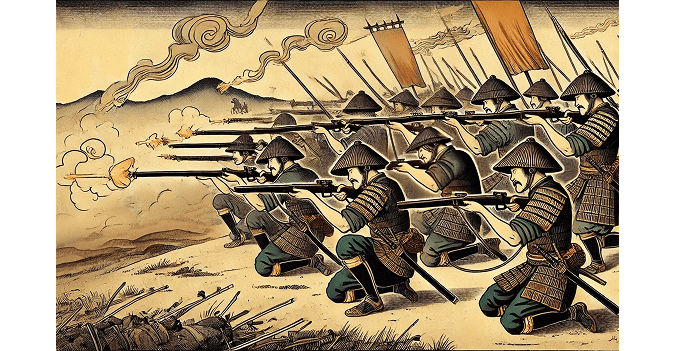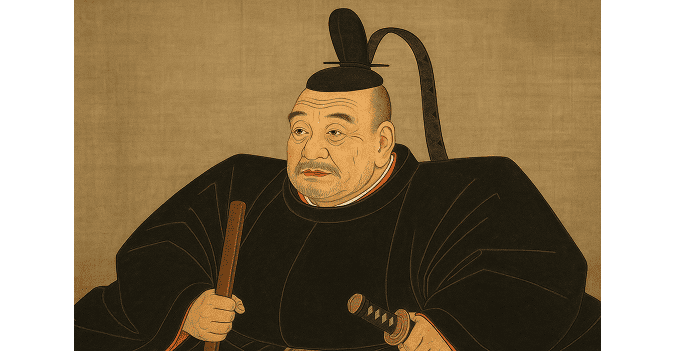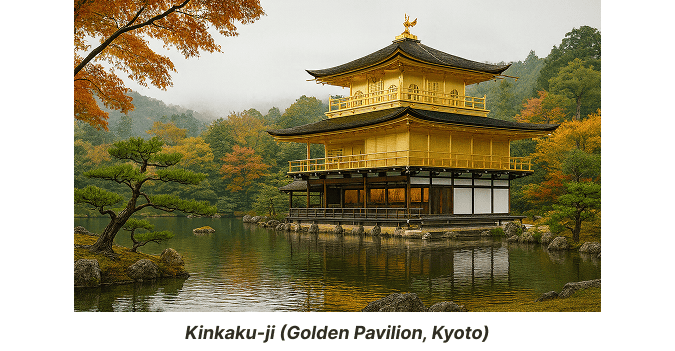The Shogun: From Samurai Commander to Japan’s Hidden Ruler
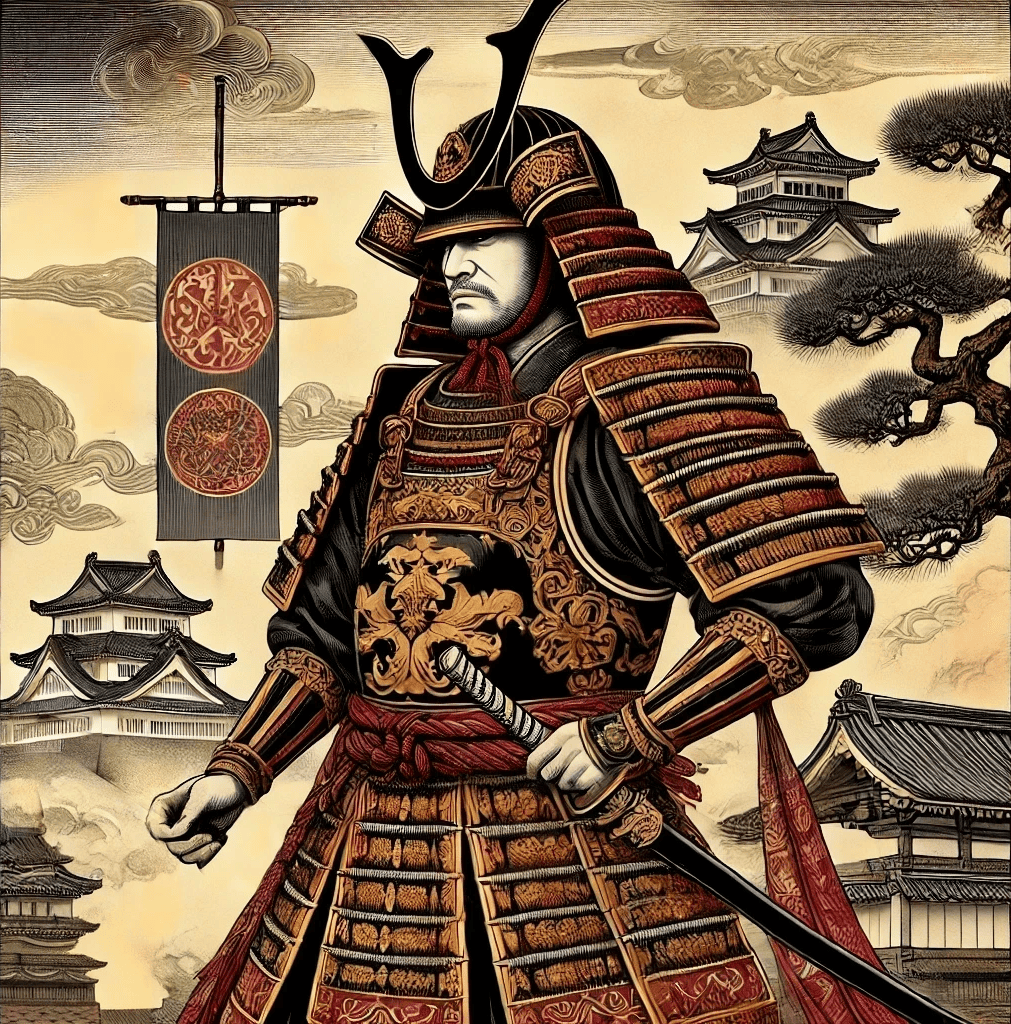
What if the real rulers didn’t sit on a throne, but wore armor, commanded armies, and pulled the strings from the shadows?
That’s exactly the story of the shogun—military leaders who, for more than 600 years, shaped the destiny of Japan. From epic battles to a society built on strict rules, the shogunate system became one of the most fascinating power structures in world history.
Let’s explore how the shoguns rose, ruled, and left a legacy that can still be felt in Japan today.
What Exactly Was a Shogun?
When you hear the word shogun, you might picture a powerful ruler who controlled all of Japan. But at the beginning, the shogun was not a political leader at all.
Originally, a shogun was more like a military commander, appointed by the emperor—who was the head of government at the time. These commanders were given temporary authority to carry out specific missions such as:
- Leading campaigns against the Emishi tribes in the northeast
- Suppressing rebellions in southern Kyushu (Hayato)
- Guarding and escorting the emperor during official processions or ceremonies
Types of Early Shogun Titles
To carry out these missions, the emperors gave their commanders special titles—almost like job names for each task.
| Title (Japanese) | Simple English Name | What They Did |
|---|---|---|
| Chintō Shōgun (鎮東将軍) | General of the East | Sent to fight and keep order in eastern Japan |
| Seishinra Taishōgun (征新羅大将軍) | General against Silla (Korea) | Led missions against the Korean kingdom of Silla |
| Kihei Taishōgun (騎兵大将軍) | Cavalry General | In charge of horse soldiers and guarding the emperor during big events |
| Chinjufu Shogun (鎮守府将軍) | Northern Defense General | Stationed in the north to protect Japan from the Emishi tribes |
| Seii Taishogun (征夷大将軍) | Great General for Subduing the “Emishi” | Supreme commander appointed to lead major campaigns in Japan’s northeast |
Most of these shogun titles were temporary, created only for specific missions.
But the title of Seii Taishogun—originally used for campaigns against the Emishi—would later take on an entirely new life.
It was gradually coming to mean the figure we all imagine when we hear the word shogun.
At this stage, being a shogun was simply about carrying out the emperor’s orders. Who could have imagined that one day, these temporary generals would transform into the true rulers of Japan?
From Temporary General to National Ruler
So when did the shogun stop being a temporary commander and rise to become the ruler of Japan?
The turning point came in the late 12th century. A talented and ambitious warrior, Minamoto no Yoritomo, was appointed Seii Taishogun. Unlike those before him, Yoritomo did not treat the title as a short-term assignment. Instead, he established his own government in Kamakura, far from the imperial court in Kyoto.
For the first time in Japanese history, the shogun was no longer just a military officer. He had become the true ruler of Japan, taking real power in place of the emperor.
Note: The emperor no longer held political power, but remained a sacred figure and an important part of Japan’s national rituals.
This moment marked the birth of a new political system—the age of the shogunate.
Shogun and Emperor: Shifting Power Through the Ages
With the rise of the shogunate, Japan’s political power shifted away from the emperor to the shogun. The emperor remained a sacred and respected figure in Kyoto, but for centuries the shogun was the one who truly governed the nation.
Let’s look at how this shift in power played out across different eras of Japanese history.
Heian Period (794–1185): Power in the Imperial Court
During the Heian era, the emperor and the aristocratic court in Kyoto held political control. Shogun titles existed, but they were temporary roles, given only for specific military campaigns.
At this stage, the emperor still stood at the center of governance.
Kamakura Period (1185–1333): The First Shogunate
With Minamoto no Yoritomo, the Kamakura Shogunate was born. The emperor remained in Kyoto as a revered figure, but now the shogun held true political and military authority, ruling from Kamakura.
This was Japan’s first real system of dual rule.
Muromachi Period (1336–1573): Authority Weakens
The Ashikaga shoguns established their government in Kyoto, closer to the emperor. But their control was fragile. Local warlords (daimyōs) gained power, and conflict spread across the country.
The emperor’s role stayed ceremonial, while the shogun’s authority often slipped from his grasp.
Sengoku & Azuchi–Momoyama (1467–1603): Warring States
During this chaotic era, the shogunate lost nearly all control. Instead, ambitious warlords such as Oda Nobunaga and Toyotomi Hideyoshi fought for dominance.
The emperor remained a symbol of tradition, but neither he nor the shogun truly ruled the land.
Edo Period (1603–1868): Shoguns at Their Peak
After the Battle of Sekigahara, Tokugawa Ieyasu established the Edo Shogunate. From Edo (modern-day Tokyo), the Tokugawa shoguns created a tightly controlled system that lasted for more than 250 years.
The emperor continued as a sacred figure in Kyoto, while the shogun exercised complete political power.
Meiji Restoration (1868): Power Returns to the Emperor
In 1868, the Tokugawa Shogunate collapsed. Political authority was restored to the emperor in the Meiji Restoration, ending centuries of shogunal rule.
Yet the structures and traditions shaped under the shoguns continued to influence Japan well into modern times.
Quick Overview of Power Balance
To summarize the long history of shifting authority between emperor and shogun, here’s a simple overview:
| Period & Years | Emperor’s Power | Shogun’s Power | Notes |
|---|---|---|---|
| Heian (794–1185) | ◎ Strong | △ Weak | Emperor & court ruled; shogun titles temporary |
| Kamakura (1185–1333) | △ Weak | ◎ Strong | Shogunate held real power; dual rule begins |
| Muromachi (1336–1573) | △ Weak | ○ Moderate | Shogun authority unstable; daimyōs rose |
| Sengoku (1467–1603) | △ Weak | △ Weak | Warlords dominated; neither emperor nor shogun truly ruled |
| Edo (1603–1868) | △ Weak (symbolic) | ◎ Strong | Tokugawa shogunate at its peak |
| Meiji Restoration (1868–) | ◎ Strong | — Abolished | Political power restored to the emperor |
The Role and Power of a Shogun in Japanese Society
When you picture a shogun, you might imagine a commander in armor, giving orders to the warriors under his lead.
But the shogun was far more than just a military leader. For over six centuries, he stood as Japan’s true ruler—guiding not only warfare, but also politics, society, and even culture.
In this section, let’s take a closer look at the many roles the shogun played in shaping Japan.
1. Military Leadership and Defense
This is the side of the shogun that most people imagine. Shoguns first gained power as supreme military leaders. They commanded samurai, armies, crushed rebellions, and protected the nation from outside threats.
In the Kamakura era, the shogunate famously repelled the Mongol invasions of the 13th century—a turning point that showed how essential a unified military command had become.
2. Political Authority and Governance
Over time, the shogunate developed into an independent military government that rivaled and then surpassed the imperial court.
- In the Kamakura period, Yoritomo established new offices like jito (estate stewards) and shugo (provincial governors) to manage the provinces.
- During the Muromachi period, the Ashikaga shoguns struggled to keep control, as local warlords (daimyōs) became increasingly powerful.
- Under the Tokugawa shoguns, centralized rule reached its peak. From Edo, they built a highly organized bureaucracy, enforced strict social order, and even regulated foreign contact.
3. Social Order and the Samurai Class
Perhaps the most lasting impact of the shoguns was the creation of a rigid social hierarchy.
- At the top stood the samurai, followed by peasants, artisans, and merchants.
- Neo-Confucian ideals emphasized loyalty, duty, and obedience.
- Under the long peace of the Tokugawa period, samurai gradually shifted from warriors to administrators and moral leaders.
This order provided stability for centuries, but it also limited social mobility.
4. Cultural Influence
What may surprise many is that the shogun also left a deep mark on Japanese culture. Shogunal rule shaped not only politics but also the arts, architecture, and daily life.
- Castles and castle towns became centers of politics and commerce.
- The shogunate sponsored arts like Noh theater, Zen gardens, and literature.
- Everyday life—from law codes to city layouts—was deeply influenced by the policies of the shogunate.
In short, the shogun was far more than a general in armor. He was the one who defended the country, governed the land, organized society, and left a cultural legacy that still shapes Japan today.
Notable Shoguns in Japanese History
Across Japan’s long history, a few shoguns—and even some leaders who never officially held the title—stand out as turning points.
Here are some of the most influential figures whose actions shaped the course of the nation.
1. Minamoto no Yoritomo (1147–1199) – Founder of the First Shogunate
Minamoto no Yoritomo was the founder of Japan’s first shogunate.
He laid the foundations of a feudal system and boldly established his base in Kamakura, far from the emperor and aristocracy in Kyoto.
Through a system of loyal vassalage, Yoritomo bound local samurai directly to the shogun, ensuring their allegiance to military authority rather than the imperial court.
His leadership created the blueprint for feudal government that later shoguns would follow, making him the true pioneer of samurai rule in Japan.
2. Ashikaga Takauji (1305–1358) – A Shogun Who Redefined Authority
Ashikaga Takauji stood out for his boldness in challenging imperial authority and reshaping politics in his own way. Rather than ruling from a distant military base, he established his government in Kyoto itself, alongside the emperor’s court. This gave the Muromachi shoguns prestige but also led to constant friction with nobles and religious powers.
At the same time, his era encouraged the growth of Zen Buddhism, Noh theater, and ink painting—cultural traditions that would leave a lasting mark on Japan. Although his political control was often fragile, Takauji’s choices created a new kind of shogunate—one that combined military rule with courtly culture.
3. Oda Nobunaga (1534–1582) – The Warlord Who Broke Tradition
Oda Nobunaga never became shogun, but he transformed Japan during the chaotic Sengoku era. Known for his ruthless drive and innovation, he introduced firearms into warfare, shattering the old ways of battle. He also destroyed powerful Buddhist forces, such as the monks of Mount Hiei, and stripped away privileges from nobles and temples.
By breaking with tradition and centralizing authority, Nobunaga cleared the path for Japan’s unification. His boldness made him one of history’s most revolutionary warlords.
4. Toyotomi Hideyoshi (1537–1598) – From Peasant to National Unifier
Toyotomi Hideyoshi rose from humble origins as a peasant-soldier to become the most powerful leader in Japan. Building on Nobunaga’s legacy, he completed the country’s unification and reshaped society.
He carried out the famous sword hunt, disarming peasants and securing samurai dominance, and conducted nationwide land surveys that fixed class divisions. At the same time, he promoted cultural pursuits like the tea ceremony, which added a refined cultural dimension to his rule.
Though his attempted invasions of Korea failed, Hideyoshi’s rise proved that even someone of low birth could define Japan’s future.
5. Tokugawa Ieyasu (1543–1616) – Architect of Lasting Peace
Tokugawa Ieyasu is remembered as the founder of the Edo Shogunate, which brought Japan over 250 years of stability. He balanced central authority with regional daimyōs, enforced strict social order, and limited foreign contact through sakoku.
More than just politics, his rule reshaped daily life. This stability allowed ordinary people to prosper, giving rise to a vibrant urban culture—kabuki theater, ukiyo-e art, and the flourishing of merchant life.
These leaders—whether official shoguns or powerful unifiers—demonstrate how the role of military leadership evolved into something far greater: the power to define the future of Japan itself.
Legacy of the Shoguns
The age of the shoguns may have ended in the 19th century, but that doesn’t mean they’ve vanished from our lives. Even today, there are many ways we can still feel their presence—through stories, traditions, and places that keep their memory alive.
Let’s take a look at some of the most familiar ways the legacy of the shoguns continues around us.
In Popular Culture
Even today, we can still encounter the shogun through television and popular media.
One of the most famous portrayals was the long-running TV drama Abarenbō Shōgun (“The Bold Shogun”), broadcast between 1978 and 2008.
It follows Tokugawa Yoshimune, the 18th-century shogun, who disguises himself as a commoner to walk among the people of Edo.
In the story, he uncovers corruption, defends ordinary citizens, and then reveals his true identity as the shogun in dramatic fashion.
While fictionalized, the series turned the shogun into a cultural icon—not only a ruler, but also a symbol of justice and protection for the people.
Shoguns have also appeared in NHK’s prestigious annual historical dramas (Taiga dramas).
Figures like Tokugawa Ieyasu, the founder of the shogunate, Tokugawa Yoshimune, known for his 18th-century reforms, and Tokugawa Yoshinobu, the last shogun of the Edo period, have all been portrayed as central characters.
These series, watched nationwide, show how shoguns are remembered not only as rulers, but also as dramatic figures whose decisions shaped the fate of Japan.
A small break — a little side note
Even today, we can still see the shogun in new global hits.
A new opportunity to experience this world has recently captured worldwide attention—the 2024 television drama SHŌGUN.
Based on James Clavell’s novel, this remake brings the turbulent era around 1600 to life.
The story follows John Blackthorne, an English navigator shipwrecked in Japan, who becomes entangled in samurai society and the rise of a powerful warlord inspired by Tokugawa Ieyasu.
Unlike older dramas that are now part of cultural memory, SHŌGUN is a fresh, modern gateway for global audiences to encounter the world of the shoguns—making this once distant history feel alive and relevant today.
Curious about the atmosphere of the series?
Take a look at the trailer below and get a taste of the drama’s world.
In Places and Tourism
Many places in Japan are directly tied to the shoguns themselves:
- Kinkaku-ji (Golden Pavilion, Kyoto) – Built by Ashikaga Yoshimitsu, the 3rd Muromachi shogun, as a symbol of his power and wealth
- Ginkaku-ji (Silver Pavilion, Kyoto) – Commissioned by Ashikaga Yoshimasa, the 8th shogun, embodying the aesthetics of wabi-sabi
- Edo Castle (Tokyo) – The residence of the Tokugawa shoguns for over 250 years, now the site of the Imperial Palace
- Nijō Castle (Kyoto) – Built for the Tokugawa shoguns when visiting Kyoto, with lavish interiors reflecting shogunal authority
- Nikkō Tōshō-gū (Tochigi) – The ornate mausoleum of Tokugawa Ieyasu, a UNESCO World Heritage Site
These sites allow visitors to walk in the footsteps of Japan’s military rulers and experience the grandeur of the shogunate age.
The shoguns may no longer hold political power, but their spirit is still alive—in Japan’s values, its culture, and the stories told around the world. They remind us that true power is not only about leading armies, but about shaping society and leaving a legacy that endures.
Conclusion: Why the Shogun Still Matters Today
The story of the shoguns is not just about warriors and battles—it is about how power, culture, and identity shaped Japan for over six centuries. From the rise of Minamoto no Yoritomo to the long peace of Tokugawa Ieyasu, the shogunate left behind political systems, social structures, and cultural treasures that still echo in modern times.
Even though the age of the shoguns has ended, we continue to encounter their presence in castles, temples, dramas, and legends. They remind us that lasting influence comes not only from military strength, but from shaping society and leaving traditions that endure across generations.
What about you? When you hear the word shogun, do you picture a warrior in armor, a wise ruler, or a cultural icon whose influence still reaches us today?
